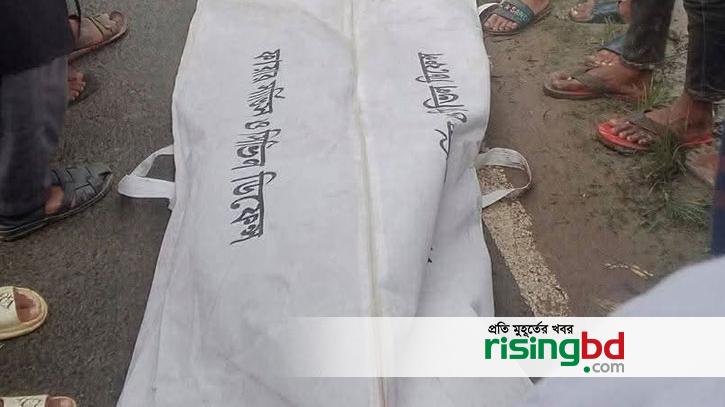Tensions over migration policy and public safety erupted into violence in Spain this week after the alleged rape of a young Spanish woman by a Malian asylum seeker sparked angry protests in the suburb of Alcalá de Henares, near Madrid. The July 4 demonstrations saw clashes between police and anti-migrant protesters outside a local asylum center, reigniting national debates over immigration, integration, and the limits of multiculturalism in Europe.
At the heart of the unrest is a 21-year-old migrant from Mali, who was arrested earlier in the week for the alleged rape and assault of a Spanish woman of the same age. Authorities claim that the attack occurred near the migrant facility, where the suspect had been residing. Surveillance footage reportedly played a key role in identifying the suspect, who has now been placed in provisional detention without bail as investigations continue.
The incident has triggered not only local outrage but also national and international attention, highlighting the mounting strain within European Union member states over how to handle ongoing waves of asylum seekers-many of whom hail from war-torn regions in Africa and the Middle East. In Spain, where Prime Minister Pedro Sánchez has taken a notably pro-migration stance, the political consequences of the incident are quickly unfolding.
Around 300 protesters gathered late on July 4 outside the migrant center in Alcalá de Henares, where an estimated 2,000 asylum seekers are currently housed. Demonstrators expressed their anger over the crime and called for the center’s immediate closure. Banners reading “Intruders, get out!” and chants attacking Prime Minister Sánchez’s migration policies echoed through the streets. Tensions escalated when demonstrators began pushing against police lines, resulting in clashes with law enforcement officers.
The protest was far from a spontaneous outburst. Many local residents had long expressed concern over the migrant facility’s presence, citing fears of overcrowding, rising petty crime, and lack of proper oversight. Judith Piquet, the mayor of Alcalá de Henares, voiced those concerns in a formal statement earlier this week, saying that the center had been established without prior consultation with the local government or an assessment of its impact on the community.
“We’ve been raising alarms for months,” Piquet said. “This facility is overcrowded, it lacks integration and security plans, and it’s created an environment of insecurity and disorder in the surrounding area.”
Piquet has formally requested the closure of the migrant center and called on the central government to implement nationwide reforms to improve safety and management at all such facilities.
The attack and the protests come at a delicate time for Spain’s Socialist-led government. Prime Minister Sánchez has consistently framed immigration as an economic necessity, arguing that Spain’s aging population and chronic labor shortages require a sustained influx of young workers from abroad. His administration has prioritized integration efforts, championed humanitarian asylum policies, and supported the EU’s broader migration framework.
However, this latest incident risks undercutting his message and emboldening opposition parties, particularly on the right, who have seized upon migrant-linked crimes to advocate for tougher border controls and restrictive asylum laws.
Santiago Abascal, leader of the far-right Vox party, was quick to condemn Sánchez following the protests, accusing the government of putting Spanish citizens at risk through “open borders insanity.” He also called for the immediate deportation of migrants who commit crimes and a moratorium on asylum admissions until current integration and security concerns are addressed.
The conservative Popular Party (PP), while more measured, also criticized the government for failing to anticipate and manage the tensions surrounding large-scale migrant housing projects. PP officials echoed Mayor Piquet’s calls for increased coordination between national and local governments on such sensitive matters.
The broader context of this unrest is the EU’s ongoing struggle to unify its migration and asylum policy. Since the 2015 migration crisis, triggered by wars in Syria, Libya, and elsewhere, the bloc has been deeply divided over how to equitably share the burden of incoming asylum seekers.
Last year, the EU adopted the European Pact on Migration and Asylum, a long-delayed initiative designed to create a “solidarity mechanism.” The pact obligates member states either to accept a proportion of asylum seekers or to contribute financially to their relocation elsewhere. Spain has backed the pact enthusiastically, arguing that collective responsibility is essential to managing long-term migration flows.
Yet, resistance from countries such as Hungary and Poland-who have refused to accept relocated migrants-has made implementation difficult. Meanwhile, in nations like Italy, France, and Germany, surging migrant populations have led to political instability, rising far-right sentiment, and new legislation tightening border controls.
Spain’s recent incident now threatens to join this broader narrative. Despite the country’s previously more tolerant public attitude toward immigration, the rape case and ensuing violence may signal a turning point in the public mood-particularly if more such incidents come to light or if local concerns remain unaddressed.
The events in Alcalá de Henares bring to the fore a persistent tension in migration policy-balancing the humanitarian imperative to shelter refugees with the need to maintain public safety and social cohesion.
Proponents of stricter immigration policies argue that a lack of vetting and insufficient integration planning opens the door to criminal activity, placing vulnerable host communities at risk. Critics of the Sánchez government contend that its policies are driven more by ideology than practicality and that ordinary citizens are being made to bear the consequences of hasty and poorly managed programs.
On the other side, human rights organizations warn against scapegoating entire communities for the actions of individuals. They caution that exploiting crimes like rape to promote anti-migrant sentiment risks inflaming xenophobia and leading to collective punishment against innocent asylum seekers, many of whom have fled violence and persecution themselves.
As the Spanish government faces growing pressure to respond, it must navigate a treacherous path-one that balances immediate public concerns with its longer-term vision for an inclusive, economically viable, and humane migration system.
A review of security protocols at all migrant centers is now likely, as is increased scrutiny of the integration policies promoted by the central government. Yet unless Madrid can restore public trust through transparent action and inclusive dialogue, similar flashpoints may erupt elsewhere in Spain.
The rape case in Alcalá de Henares is more than a tragic crime-it is a symptom of deeper unrest over identity, sovereignty, and security in a continent still reckoning with the consequences of a decade-long migration crisis. As Europe moves into a new political era shaped by economic uncertainty, aging populations, and global instability, the way its leaders address these tensions may well define the future of the European project itself.
Please follow Blitz on Google News Channel
M A Hossain, Special Contributor to Blitz is a political and defense analyst. He regularly writes for local and international newspapers.
anti-migrant-protests-erupt-in-spain-after-rape-by-asylum-seeker















Leave a Reply